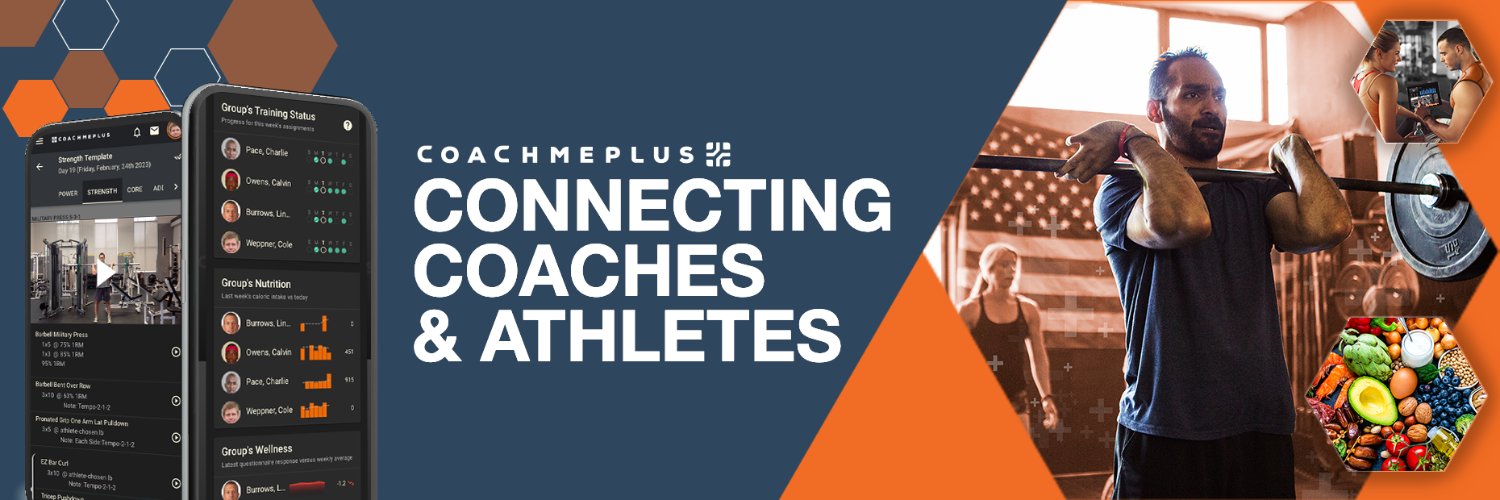Tracking Performance Metrics for Athlete Progress
In the realm of sports and athletic training, the ability to accurately track performance metrics is crucial for assessing progress and optimizing training programs. Tracking performance metrics provide valuable insights into an athlete’s development, highlighting strengths, identifying areas for improvement, and guiding strategic adjustments. In this blog, we’ll explore the importance of tracking performance metrics, key indicators for assessing athlete progress, and how the CoachMePlus app supports this essential aspect of athletic development.
The Importance of Tracking Performance Metrics
Performance metrics are quantifiable data points that reflect an athlete’s physical abilities, training efficiency, and overall progress. Tracking performance metrics offers several benefits:
Objective Evaluation
1 Data-Driven Decisions: Objective data allows coaches and athletes to make informed decisions about training and competition strategies.
2. Progress Monitoring: Regular tracking helps in monitoring progress over time, ensuring that training goals are being met.
Performance Optimization
1. Identify Strengths and Weaknesses: Metrics reveal strengths and areas that need improvement, enabling targeted training interventions.
2. Adjust Training Plans: By analyzing performance data, coaches can adjust training plans to optimize performance and prevent overtraining.
Motivation and Accountability
1. Goal Setting and Achievement: Tracking metrics provides concrete evidence of progress, helping athletes stay motivated and focused on their goals.
2. Accountability: Regular monitoring creates accountability, encouraging athletes to adhere to their training programs.

Key Performance Metrics for Athletes
While the specific metrics may vary depending on the sport, several key indicators are commonly used to assess athlete progress:
Physical Fitness Metrics
1. Strength: Metrics such as one-rep max (1RM) for weightlifting exercises (e.g., bench press, squat) measure an athlete’s strength levels.
2. Endurance: Tests like the VO2 max, beep test, and time trials assess cardiovascular endurance and stamina.
3. Speed and Agility: Sprint times, agility drills (e.g., shuttle runs), and reaction time tests measure an athlete’s speed and quickness.
4. Power: Vertical jump height, broad jump distance, and power cleans assess explosive power.
Performance and Skill Metrics
- Technique and Form: Video analysis and biomechanical assessments evaluate an athlete’s technique and form in specific movements.
- Game-Specific Skills: Metrics like shooting accuracy in basketball, passing accuracy in soccer, and serve speed in tennis measure sport-specific skills.
Health and Wellness Metrics
1. Body Composition: Measurements such as body fat percentage, muscle mass, and BMI provide insights into an athlete’s physical condition.
2. Recovery: Monitoring sleep quality, heart rate variability (HRV), and muscle soreness helps assess recovery and readiness for training.
3. Injury Risk: Metrics like joint stability, flexibility, and previous injury history help identify potential injury risks.

Leveraging CoachMePlus for Performance Tracking
CoachMePlus is a comprehensive platform that supports the tracking and analysis of performance metrics, offering a suite of features designed to enhance athlete development:
Comprehensive Data Collection
1. Integrated Tracking: The app integrates data from various sources, including wearable devices, fitness trackers, and manual entries.
2. Customizable Metrics: Coaches and athletes can customize the metrics they track to suit their specific needs and goals.
Detailed Analysis and Reporting
1. Performance Dashboards: Access comprehensive dashboards that provide real-time insights into an athlete’s performance.
2. Automated Reports: Generate automated reports that summarize key performance metrics and provide actionable insights.
Goal Setting and Progress Tracking
1. SMART Goals: Set Specific, Measurable, Achievable, Relevant, and Time-bound (SMART) goals within the app, providing clear milestones for athletes.
2. Goal Setting Interface: Establish and monitor both short-term and long-term goals, ensuring that athletes stay focused and motivated.
3. Progress Monitoring: Continuously monitor progress through the app’s tracking tools, ensuring that athletes stay on track.
How CoachMePlus Enhances Training Programs
By leveraging the comprehensive tracking and analysis features of CoachMePlus, coaches and athletes can enhance their training programs in several ways:
1. Personalized Training: Use detailed performance data to create personalized training plans that address individual needs and goals.
2. Informed Adjustments: Make data-driven adjustments to training programs based on real-time performance insights, optimizing training efficiency.
3. Enhanced Communication: Foster better communication between coaches and athletes through shared data and feedback, ensuring alignment on training objectives and progress.

Unlocking Athletic Potential with Data-Driven Training
Tracking performance metrics is essential for assessing athlete progress and optimizing training programs. By monitoring key indicators such as strength, endurance, speed, and recovery, coaches and athletes can make informed decisions, set achievable goals, and stay motivated. The CoachMePlus app offers a robust platform for tracking, analyzing, and reporting performance metrics, providing valuable insights that drive athlete development. Embrace the power of data-driven training with CoachMePlus and unlock your full athletic potential.

Recent Comments